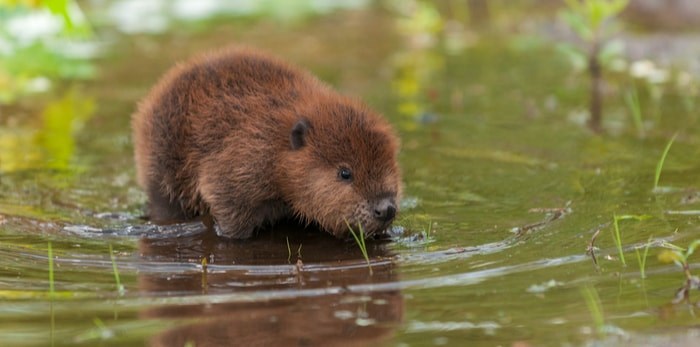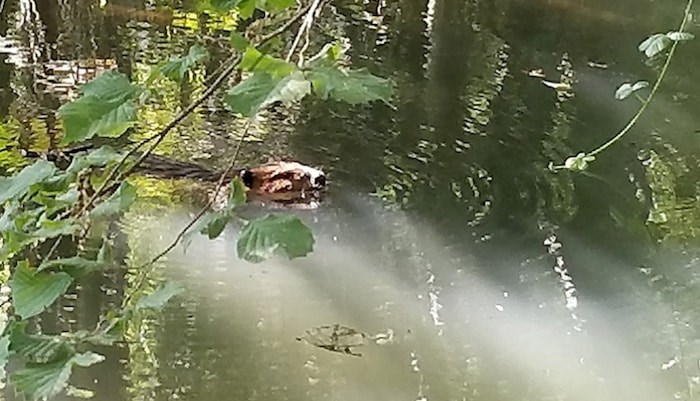Two Port Moody advocates hoping their city does right by beavers that take up residence in the city’s waterways are “cautiously optimistic” it is heading in the right direction with a management plan for the industrious creatures.
 Beaver kit/Shutterstock
Beaver kit/Shutterstock
Judy Taylor-Atkinson said she and husband Jim Atkinson came away from a meeting Tuesday with Port Moody’s city manager, Tim Savoie, feeling better than a week prior, when they expressed their concerns about the process the city was following to develop its plan during a public presentation to city council.
Taylor-Atkinson said they were concerned the city wasn’t seeking input from a recognized beaver expert as it puts together a framework for its beaver management plan and the city would continue to regard the rodent as a nuisance creature that has to be managed.
“What seems to be fading is any pretext toward acceptance of beaver as another ingredient in the wildlife urban melting pot,” Taylor-Atkinson said.
The need for the city to develop a comprehensive plan for dealing with beavers came to the fore last December after a beaver kit perished as city crews tried to trap it and evict it from a den that the beaver’s family had constructed in a storm pipe in Pigeon Creek, in the Klahanie neighbourhood.
In February, Port Moody council approved Coun. Meghan Lahti’s motion for the city to develop a beaver management plan so more such deaths wouldn’t recur.
Lahti told The Tri-City News this week the city has an opportunity to be a leader amongst Lower Mainland communities dealing with beavers.
 The beaver family that used to live in Pigeon creek has now established a new home in Suter Brook creek. Local beaver advocate Judy Taylor-Atkinson said the creatures likely moved because of the stress and upset caused by the city’s attempts last year to evict it from their den in a storm drain pipe that resulted in the death of one of two kits. She said their tumult reinforces the need for the city to develop a beaver management plan that relies on science. (Photo by Larry Smith)
The beaver family that used to live in Pigeon creek has now established a new home in Suter Brook creek. Local beaver advocate Judy Taylor-Atkinson said the creatures likely moved because of the stress and upset caused by the city’s attempts last year to evict it from their den in a storm drain pipe that resulted in the death of one of two kits. She said their tumult reinforces the need for the city to develop a beaver management plan that relies on science. (Photo by Larry Smith)
“I think we’ll be the first ones to really put the beavers into focus,” she said. “I’m hoping people will look to us to see how we proceed.”
But Taylor-Atkinson said she’s worried the process has become bogged down as it navigates the interests of three levels of government as well as various hatcheries, and she’s afraid the interests of the beavers will be washed away.
Savoie said developing a plan for the beavers is complicated, with responsibility shared by all levels of government. But, he said, “The city is fully committed to a planning process that will bring together our environmental stakeholders.”
That will happen at a meeting this month, with the plan targeted to be in place by next spring, Savoie said.
Meanwhile, the beaver family has moved on from Pigeon Creek to take up residence in nearby Suter Brook Creek, where it has constructed a new den near the public works yard and is in the process of raising a new kit that was likely born in the middle of last summer.
Taylor-Atkinson said that’s later than usual, so the young beaver is smaller than it should be heading into winter. She said the adult pair likely mated later than its typical January season because of the stress caused by the city’s interference and the subsequent move and establishment of a new home.
Taylor-Atkinson said because the base of knowledge surrounding beavers and the impact they have on their habitat is still growing, it’s important the city’s plan promote co-existence.
“It will come around to seeing beaver as a benefit to stream systems,” she said. “That’s why it’s important to have the best science.”



